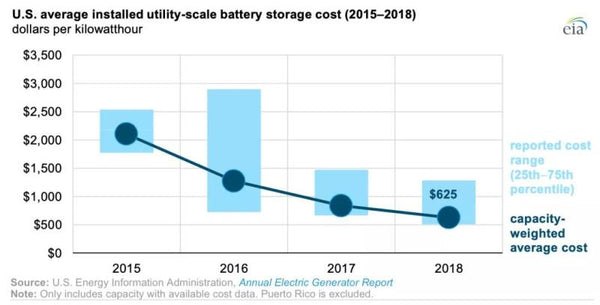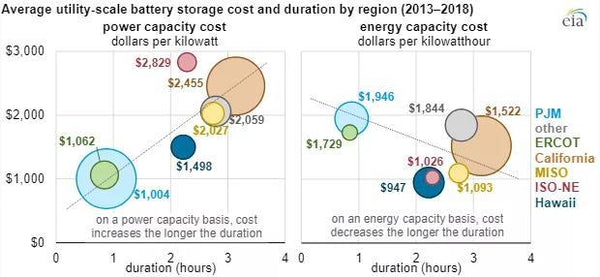According to data from the U.S. Energy Information Administration, the average energy capacity cost of U.S. utility-scale battery storage has rapidly dropped from USD 2,152/kWh in 2015 to USD 625/kWh in 2018. As of the end of 2018, the installed battery power capacity in the United States was 869 MW (the maximum power that the battery can provide at a given moment), and the battery energy capacity was 1,236 MWh (the total energy that the battery can store).

The United States added 152 megawatts of battery storage capacity in 2019, and added 301 megawatts from January to July 2020. According to the planned new capacity data reported by developers and power plant owners as of July 2020, it is expected that the battery storage capacity will increase by more than 6,900 megawatts in the next few years.

Large battery storage systems are increasingly paired with renewable energy power plants to improve the reliability and resilience of the grid. In 2019, California's battery installed capacity ranked first in all states in the United States, with an average battery storage cost of $1,522/kWh. Approximately two-thirds of California's battery storage capacity is used for frequency regulation, and energy-oriented services are also provided, including auxiliary services, black start services, and transmission congestion relief.

